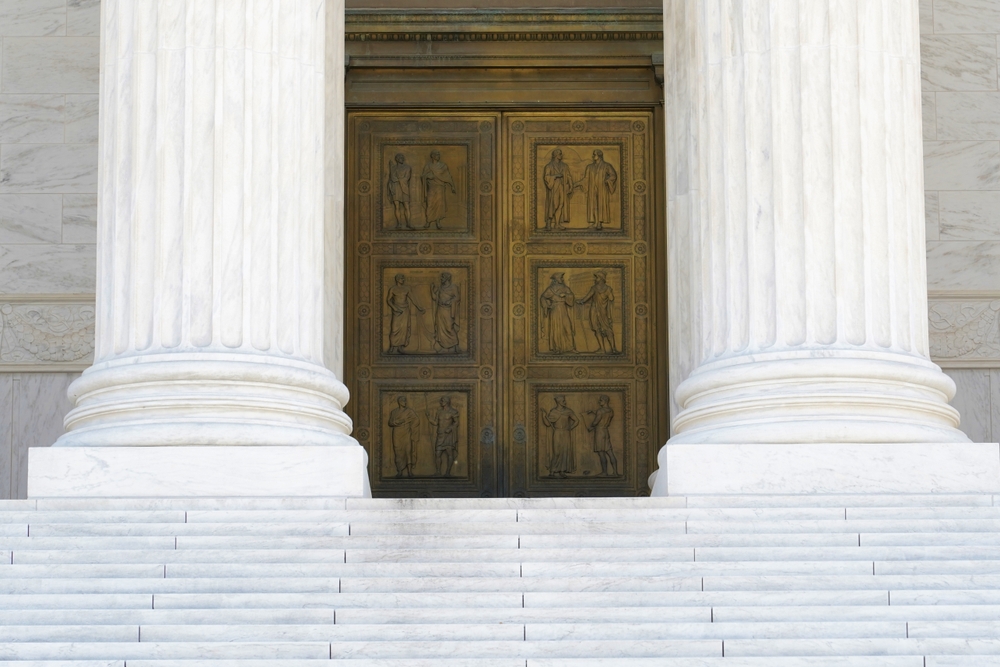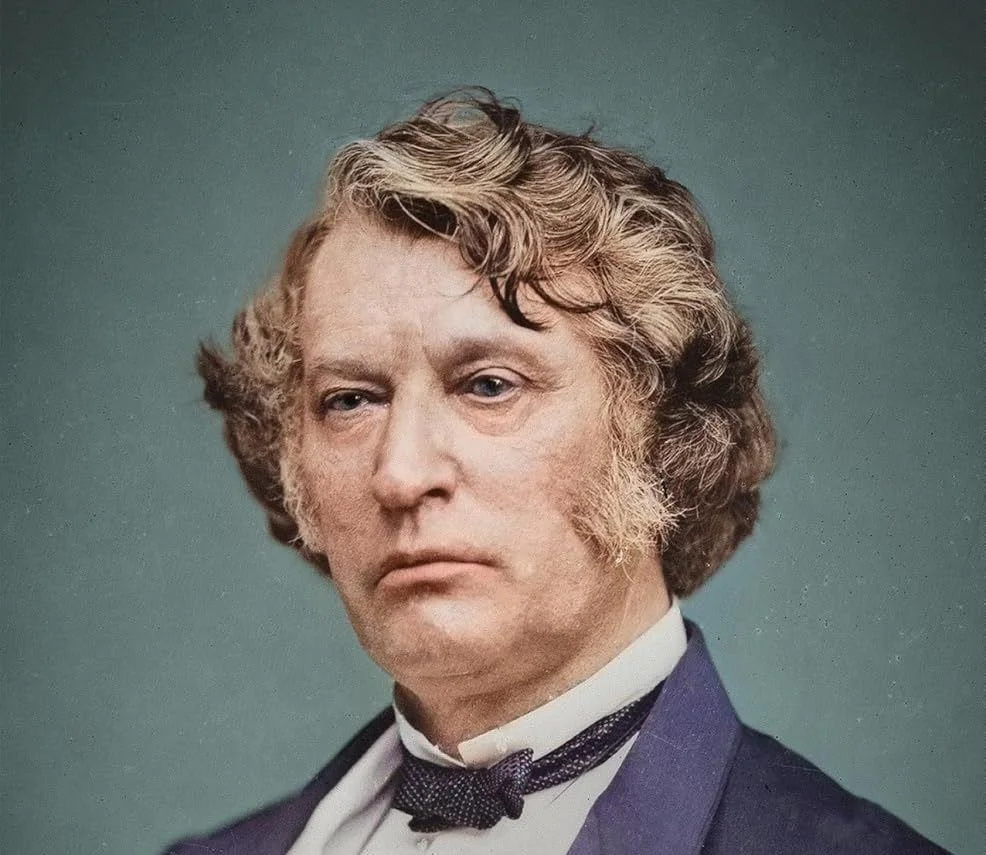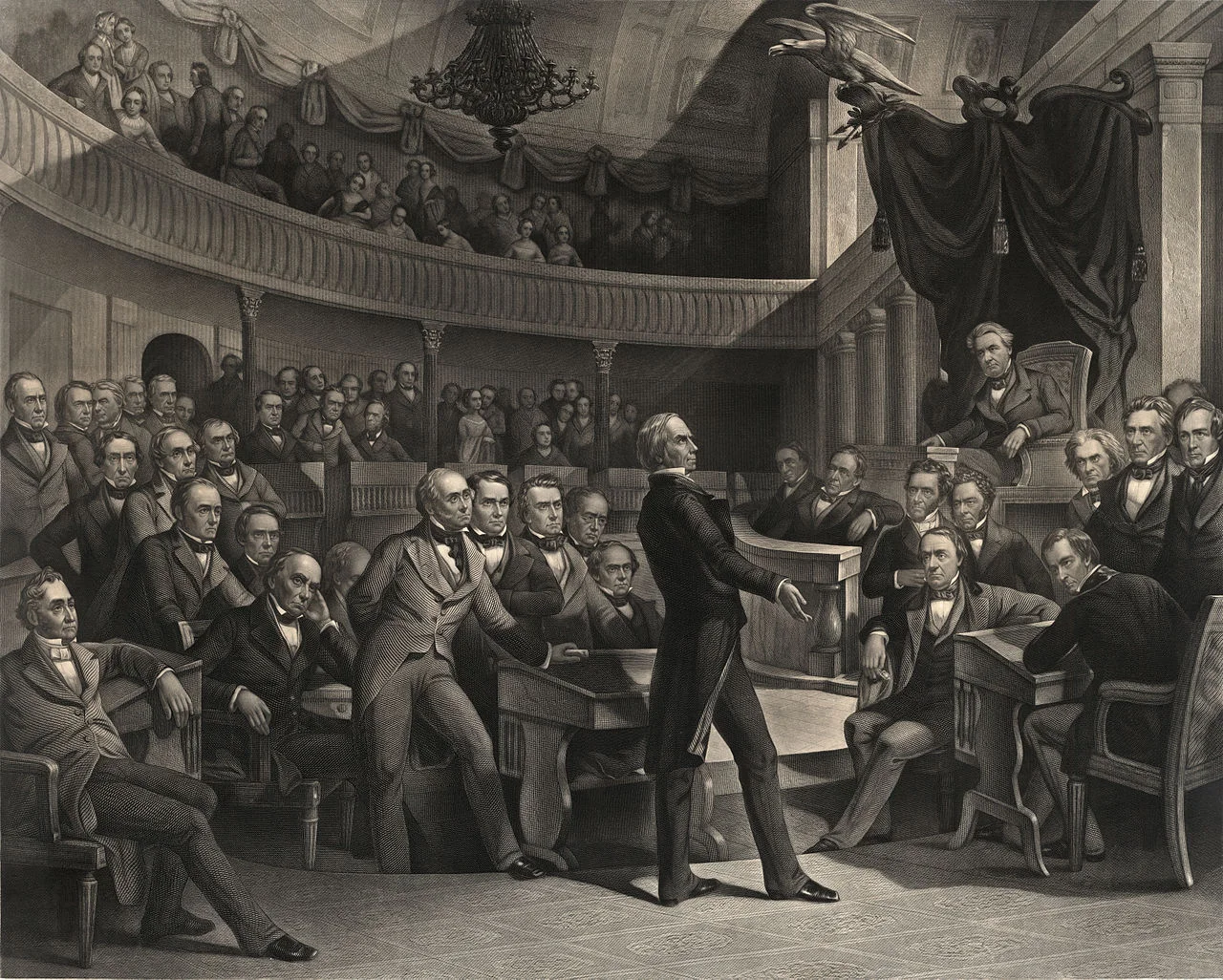
Originalism Must Restore Self Government
Originalism should revisit the legislative virtues that will help reform and refurbish Congress.
Originalism emerged to criticize judicial decisions whose basis in the Constitution was unclear and perhaps nonexistent. Over the past several decades, it has reoriented academic constitutional theory. Today there is an originalist majority on the Supreme Court. The prime motivation for originalism in its first wave—what sustained it as a jurisprudential movement with real political purchase—was the claim that courts were illegitimately abandoning or fabricating the Constitution's original meaning to displace legislatures. Now there is growing concern that originalism might become just another tool that judges use to decide the nation’s most pressing issues to the exclusion of representative institutions. Today’s originalism should be measured against its initial motivation, which entails broadening originalism’s ambit beyond jurisprudence, judges, and courts to make it more consonant with deliberative self-government.
Originalism moved from an early focus on original intent to “original public meaning.” Then came a crucial distinction between interpretation as the recovery of original meaning and “construction” as the politically contested development of new meanings when original meaning ran out. And now, too, there is “original methods” originalism, which holds that the Constitution should be interpreted with the legal tools of the era in which it was created, and “original law” originalism, which holds that the Constitution’s meaning as law is relatively spare and should be interpreted by ordinary legal methods until validly changed. While the various permutations of originalism can be complex and bewildering, they are not necessarily a sign of utter disarray and incompatibility (although they may be). It is possible that they represent the ongoing development and refinement of a fecund and robust theory whose variants agree on the core propositions that the Constitution’s meaning was “fixed” at the time of its creation and that later interpreters are “constrained” by it. This was how Justice Amy Coney Barrett defined the core of originalism in the recent Rahimi decision, echoing a well-known point in academic literature. In that decision, the Court’s originalists undertook research into historical sources. They displayed a range of approaches, including consideration of how originalism should relate to tradition and precedent, to hold that disarming a person under a restraining order for domestic violence did not violate the Second Amendment. Serious scholars are likewise engaged in efforts to cohere different versions of originalism and to explain how different routes can reach the same point.
Still, there are dangers. One is that theorists have so magnified the notion of “construction” that it licenses judges to create doctrine rooted in their proclivities instead of deferring to the outcome of political contests over constitutional meaning undertaken in the legislature and its interactions with the executive branch. Another is the emergence of the libertarian theory of “judicial engagement,” which would empower judges to actively superintend legislatures in the name of the autonomous individual as if that were the overriding original meaning of the Constitution. On the other end of the spectrum is the emergence of “common good” constitutionalism or a so-called “better” originalism that would use the constitutional text merely as a jumping-off point for judges to enforce some version of natural law. These developments risk reversing originalism’s initial attempt to cabin runaway judicial discretion. Additionally, most originalists, and those who would transcend originalism in the name of libertarianism or natural law, remain in thrall to judicial supremacy—the longstanding but false belief that the Supreme Court is the ultimate arbiter of constitutional meaning.
Though constitutionally unsound, judicial supremacy will likely be around for a while. And yet today’s originalist Court sometimes successfully restrains itself while cueing state legislatures and Congress to their constitutional duties. This is the proper way to understand the return of the abortion issue to the states in Dobbs. So, too, with the Court’s pushing Congress to write laws that rein in bureaucratic discretion via the “major questions doctrine” in West Virginia v. EPA and its ending of the court’s automatic Chevron deference to administrative agencies in Loper Bright Enterprises.
The judicial role must be recalibrated if originalism is to allow adequate space for citizens to govern themselves via representation in the legislature. Originalism should revisit the legislative virtues that will help reform and refurbish Congress. The legislature is the primary place for creating democratically legitimate public policy—the role the founders intended for it and that originalism initially advocated.
The first order of business is for Americans to relearn how and why Congress is the first branch and why we need it to do what no other institution can. Central to the founders’ political science was a recognition of the vastness and diversity of the nation. People constantly differed and disagreed with one another even as they recognized a common heritage and set of political principles. An unending challenge for Americans is to take those shared principles as the basis for making something common amid our differences. Only then can collective action be taken to address national concerns. This is what Congress is for and what only it can do. In representing the nation in its diversity, its “manyness,” and discussing the various interests and perspectives brought to the capital, Congress argues, deliberates, and compromises as it accounts for contested and sometimes irreconcilable views.
When done well, the result is a law that is rarely perfect but democratically legitimate despite its flaws. And the democratic legitimacy bestowed by Congress may not necessarily reflect the immediate demands of a numerical majority of the public at any given moment. This, too, is according to the founders’ design. The multiple veto points in the legislative process and the coalition of interests that typically must be assembled to surmount them slows down lawmaking, requiring it to become more broad-based and deliberative. Law cannot be made unless it has proven acceptable to a wide swath of the nation over some time. This kind of deliberation is realistic, not some pie-in-the-sky expectation that legislators will be somehow transformed into paragons of public-mindedness upon entering Congress. Instead, they will find other legislators who have differing agendas because they represent other areas with different interests—and with whom they must find common ground via the human capacities for reason and empathy. This understanding of Congress emerged from the nation’s founding and has characterized the institution at some crucial high points in its history. It is this understanding that teachers of civics, history, and political thought must endeavor to bring to a broader audience if Americans are to be self-governing people as the founders originally intended.
Nobody would say that today’s Congress functions as well as it should—sometimes, it barely functions. The reasons for its decline are many, complicated, and often self-inflicted. Without attempting to explain fully how we got here, it is heartening that serious attention is being given today to how Congress might be improved. A few of the more fundamental proposals are worth considering. (Some of the best current thinking about Congress, reform, and deliberation is happening at the American Enterprise Institute, led by Yuval Levin (and his editing of National Affairs), Philip Wallach, and Kevin Kosar’s UnderstandingCongress.org.)
The most fundamental problem has already been identified, and the Supreme Court has pointed out the correct path. Congress must regain control over the power it has delegated to the regulatory bureaucracies of the administrative state. Because the Court has become increasingly resistant to Congress’s longstanding practice of making nearly standardless delegations to bureaucrats who govern of their own accord, the national legislature is being pushed to act more like a deliberative body. A compulsion to arrive at clearer legal standards amid diversity and disagreement prompts Congress to fashion workable accords as only it can. If Congress stops passing on all the hard political choices to bureaucrats, it will look more like the legislature the founders intended.
The REINS Act (Regulations from the Executive in Need of Scrutiny) is a related idea discussed for over a decade. It would compel Congress to approve major agency regulations before they take effect; “major” is defined as a large dollar economic impact. Congress would be forced to weigh in on crucial regulatory policy questions rather than continuing to accept whatever the administrative state decrees automatically. REINS has not passed, but it should not be abandoned quite yet. Another idea is for Congress to legislate sunset provisions for new rules issued by administrative agencies. This would compel agencies to revisit regulations and their effects before extending them. Although wholesale repudiation of the administrative state is unlikely and would be neither practically workable nor politically saleable, Congress can bring more constitutional discipline to a development that has been unchecked for too long.
Several other interrelated pathologies also beset today’s Congress. One is the tight centralization of power in party leaders (primarily via the Rules Committee in the House of Representatives). It freezes out or makes irrelevant the participation of individual members and the work of committees. At the same time, however, the parties as organizational structures have long lacked adequate control over individual members and discontented factions, so they fail to discipline or moderate them to sustain a broad coalition. As political opinion has polarized, aided by the system of primary elections that rewards more radical candidates, many rank-and-file members of Congress find themselves in a party that cannot register or absorb their demands and a legislative structure that has little use for them. Meanwhile, Congress has systematically diminished its capacity to govern by cutting spending on everything from staff to research services.
There is no silver bullet to remedy this morass of problems. How to address the distortions introduced by the primary system is particularly difficult since it is unlikely that we will return to party conventions that selected candidates in “smoke-filled” rooms, nor to the patronage and rank pork-barrel spending that did so much facilitate party control and loyalty. This is why reform advocates are discussing the feasibility of ranked-choice voting in primaries and how intraparty factions might be given more of a voice in the counsels of party caucuses in Congress. It is hoped that the first idea would incentivize candidates to appeal to a broader (and thus more moderate) range of primary voters. The second would acknowledge that intraparty clashes can be fructifying while tamping them down at least somewhat within the confines of party principles. So, too, it might improve the possibility for cross-party accommodations that did not depend on the votes of minorities with extreme views who had been heard in the caucus but remained a minority.
Reform that improves Congress by making parties better at reconciling and integrating conflicting political opinions is a long-term goal. Closer to the foreground are proposals to make congressional business less centralized in leaders, creating more opportunities and incentives for members to participate and deliberate. Many such proposals are being discussed and involve the arcana of parliamentary procedure. One goal is to reform and better respect committees, the traditional “workhorses” of Congress where authentic deliberation traditionally occurs. Today, committees are too often sites for grandstanding and superficiality, while what they do manage to produce is frequently bypassed or altered by leaders, thus disincentivizing members to undertake the effort in the first place. Committees could be strengthened by changes in how hearings are conducted, a reduction in conflicts in meeting times, additional staffing, and more say for members in the choice of committee chairs. Committees could be made more relevant, particularly in the House, by changes in floor procedure that allow their work to be considered more carefully, rather than today’s practice wherein the leadership can ignore it, rewrite it, or call a vote with minimal debate or opportunity for amendment. These and many related proposals deserve wider attention if Congress is to be improved.
A nation without a functional and responsible legislature is not genuinely self-governing. Only in such a legislature can national concerns be met with laws that carry the imprimatur of laboriously fashioned democratic legitimacy. Originalism has come a long way in redirecting jurisprudence away from progressives’ judicially updated “living Constitution.” Now, it must give more attention to reviving Congress as the first branch of the Founders’ Constitution.
Johnathan O'Neill is Professor of History at Georgia Southern University. His most recent book is Conservative Thought and American Constitutionalism since the New Deal.
Constitutionalism

Amicus Brief: Hon. William P. Barr and Hon. Michael B. Mukasey in Support of Petitioners
Former AGs Barr and Mukasey Cite Civitas in a SCOTUS Brief

Rational Judicial Review: Constitutions as Power-sharing Agreements, Secession, and the Problem of Dred Scott
Judicial review and originalism serve as valuable commitment mechanisms to enforce future compliance with a political bargain.

Supreme Court showdown exposes shaky case against birthright citizenship
Supreme Court will hear challenges to Trump's order ending birthright citizenship, testing the 14th Amendment's guarantee for babies born in America.

Two Hails For The Chief’s NDA
Instead of trying to futilely plug the dam to stop leaks, the Court should release a safety valve.

Charles Sumner’s Harmony with the Declaration
Sumner used the Declaration to increase the Constitution’s pursuit of forming a more perfect union.


.avif)










.avif)



